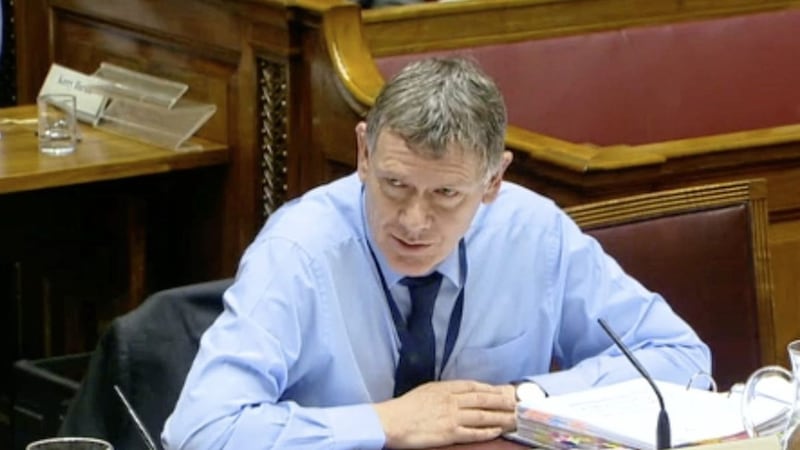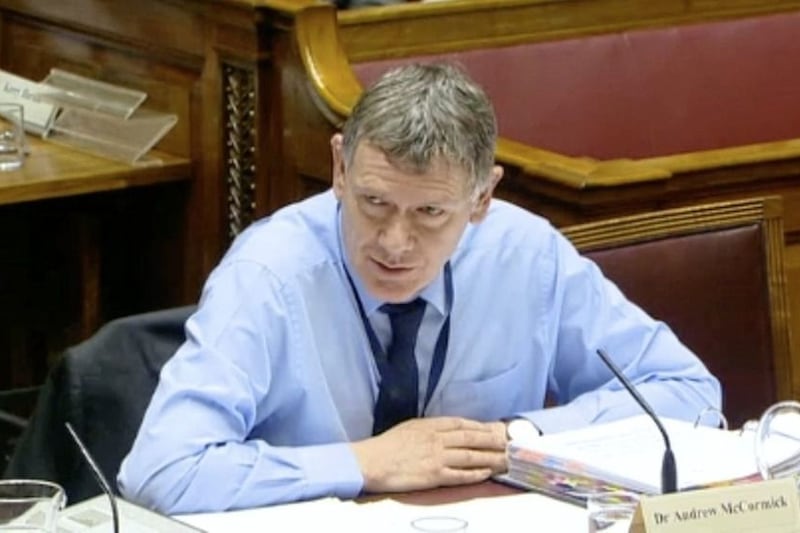A PLAN to cut the £490 million overspend of Stormont's botched RHI scheme was the idea of a political party special adviser (Spad) not a civil servant, an Assembly committee has been told.
Dr Andrew McCormick, the senior civil servant at the Department of Economy, did not name the Spad but made clear it was not the adviser working within his department, the DUP's John Robinson.
In response, Alliance member Stephen Farry raised concerns the plan was a "political fix" to overcome the "hurdle of an election" or to "take the heat off a media furore".
Dr McCormick insisted there was "nothing untoward" about a special adviser feeding ideas into internal departmental decision-making processes.
Giving evidence to the committee, Dr McCormick said the one-year plan would not provide compensation for applicants to the RHI scheme. He said such issues would be examined by an anticipated longer-term plan.
The departmental permanent secretary also apologised for the non-appearance of DUP minister Simon Hamilton, who had been invited to brief members on plans to reduce the overspend.
A spokeswoman for the Mr Hamilton later said: "The minister had been invited to the Economy committee however he had not confirmed his attendance."
The role of DUP Spads has been the source of controversy throughout the RHI scandal.
One of them - Dr Andrew Crawford - resigned last week over allegations, which he denies, that he exerted influence to keep the RHI scheme running at high tariff levels.
Meanwhile, Mr Robinson stood aside from any role in the RHI scheme after it was revealed his father-in-law ran two of the boilers.
Dr McCormick was briefing Economy committee members on Mr Hamilton's temporary plan to clamp down on the projected overspend.
The proposals include introducing a one-year two-tier tariff structure and a payment cap from April 1, with a longer-term plan to follow.
The plan is likely to face legal challenges from RHI applicants.
Much of the committee discussions focused on the threat of Mr Hamilton's plans being the subject of a judicial review by disgruntled RHI applicants.
Dr McCormick said the courts would also likely take into account the relatively few number of whistleblowers who came forward to flag up the problems with the boiler scheme.
"Shame on us for not having spotted the problem until too late," he said.
"But there is also a significant issue as to why people continued to burn and nobody told us.
"That should affect how it is assessed by the court."
He suggested the fact applicants ended up obtaining a rate of return better than the one they were told they might expect should not necessarily mean they should be compensated.
Dr McCormick said any concerns that the overspend fix plan was "unfair" would be addressed when it came to establishing a long-term plan for 2018 onward.








